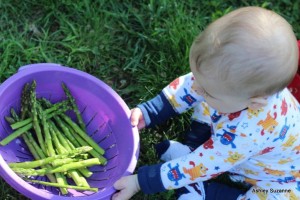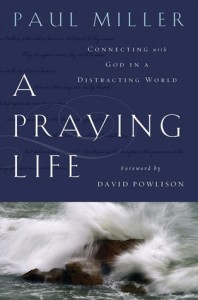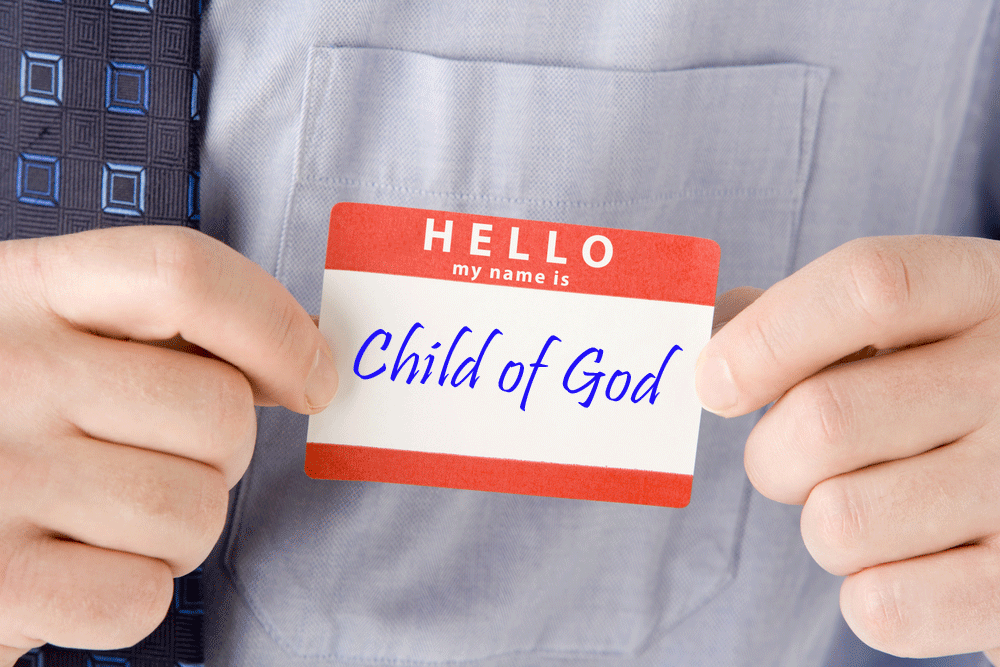
by Ashley Haupt | Sep 18, 2013
On any given day, when I open up my Facebook newsfeed, I see posts about 100 Days of Real Food, the paleo diet, the high metabolism diet, and “eating clean.” It’s a positive trend: the 20 and 30 somethings of this generation are taking stock of America’s obesity problem, and saying, “No thanks. We’ll pass on diabetes, heart disease, chronic illness, and the host of other terrifying health problems plaguing the health care system.”
They want to know where their food comes from. They want to grow it themselves, and they want to “eat clean,” with less processed foods and more fresh fruits and veggies. Interest in gardening and composting is ever-increasing, and restaurants have been forced to adapt to the new food rules to stay in the market. Just dropping the word “quinoa” or “kale” gets you instantly in with the cool crowd of young hipsters seeking to be healthy.
This movement is coming at a crucial time. Americans are starting to pay the price for the gallons of Coke they’ve guzzled. Evidence shows that our bodies are breaking down under the ridiculous amounts of sugar, fat and cholesterol we put into them. Healthcare is out of control as doctors try to stem the tide of physical breakdown from poor nutrition. Dr. Oz has become popular with the baby boomers, who are discovering how difficult it is to change habits in the retirement years.
 I have quinoa in my pantry, but there’s a Diet Coke in the fridge, too. Keeping company with my Diet Coke are fresh green beans, asparagus, baby carrots, and ripe pears. I make a mean homemade chicken pot pie and prepare our dinners “from scratch” most weeknights. But I also make the occasional box of macaroni and cheese and purchase cheap frozen pizzas on the nights when I have the kids alone and need a shortcut. I’m more of a moderation girl when it comes to food philosophies. I don’t want to be ignorant. I do want my family to be healthy. I watch portions, but I’m probably never going to stop baking desserts, which is creative and fun therapy for me.
I have quinoa in my pantry, but there’s a Diet Coke in the fridge, too. Keeping company with my Diet Coke are fresh green beans, asparagus, baby carrots, and ripe pears. I make a mean homemade chicken pot pie and prepare our dinners “from scratch” most weeknights. But I also make the occasional box of macaroni and cheese and purchase cheap frozen pizzas on the nights when I have the kids alone and need a shortcut. I’m more of a moderation girl when it comes to food philosophies. I don’t want to be ignorant. I do want my family to be healthy. I watch portions, but I’m probably never going to stop baking desserts, which is creative and fun therapy for me.
I applaud our millennial generation. We need to be informed, make intelligent decisions regarding our food, and break the cycle of convenience foods that wreck our health. We need to focus on quality over quantity, turn off our TVs, dust off our dining room tables, and reign in our out-of-control appetites. There is nothing holy about destroying your body to feed your appetite, or as the Bible puts it “Their god is their stomach.” Yikes. (Phil. 3:19)
But I have a gentle caution for our zealously healthy generation. All of these healthy movements create an atmosphere ripe for judgment, division, and condemnation. “You are what you eat” is not in the Bible, but consider some of the verses that are:
Jesus called the crowd to him and said, Listen and understand. What goes into a man’s mouth does not make him ‘unclean,’ but what comes out of his mouth, that is what makes him ‘unclean.’ (Matt. 15:10-11)
For the kingdom of God is not a matter of eating and drinking, but of righteousness, peace and joy in the Holy Spirit, because anyone who serves Christ in this way is pleasing to God and approved by men. . . Do not destroy the work of God for the sake of food. (Rom. 14:17-19)
They forbid people to marry and order them to abstain from certain foods, which God created to be received with thanksgiving by those who believe and who know the truth. For everything God created is good, and nothing is to be rejected if it is received with thanksgiving, because it is consecrated by the word of God and prayer. (1 Tim. 4:3-5)
Friends, the kingdom of God is not a matter of eating and drinking, but of righteousness, peace and joy in the Holy Spirit. While we seek to grow in godliness, grace, and healthy eating, let’s keep the central issues in priority. If you find yourself looking critically at the contents of your neighbor’s grocery cart, and feeling a sense of superiority in your own habits, check your heart. Jesus reminds us that the evil thoughts coming out of hearts make us more unclean than the processed food going into our bellies.
Lysa Terkeurst recently shared in a blog post about a night she had to buy take-out for her family due to lack of time. She felt guilty as she threw away the disposable containers, thinking about a healthy, made-from-scratch recipe she had received earlier that day from a friend. She wondered if she should have cleared their family schedule to make more time for cooking. But the extra activity that put them in a time crunch was a gathering of her young daughter’s friends to hear Lysa speak about Christ. As she went to the gathering and shared her heart, the Holy Spirit overflowed in her service; many people were touched, and several believed in Christ for the first time. The Savior was exalted. Read the story here.
If I cook with the grains of a thousand quinoa and have a garden that could feed the multitudes, but have not love and show not hospitality, I accomplish nothing for the kingdom. Let us put to death the condemning thoughts of judgment that would divide us regarding food, and spur one another on to love and good deeds. Who knows? Maybe good nutrition will follow.
Seek first his kingdom and all these things will be added to you as well.

by Ashley Haupt | Sep 5, 2013
My four year old loves all things spidery, lizardy, snakey, or reptilian. I had night terrors involving arachnids as a child, so that makes me a less-than-ideal boy mom, but whatever. He acquired a baby lizard recently, and while talking him out of keeping it (What will we feed it, honey? Inside, I am thinking, Salmonella!!), we purchased a $2 toy lizard to ease the pain. But when we went swimming on Labor Day as a family, the toy lizard got lost in the shuffle. Ben was heartbroken about it as we climbed into our minivan to leave the pool.
Finally, I told him to pray with his big sister (six) while Daddy and I got out to take one more look. As we headed back to the pool area, I prayed God, you know how this matters to him. Please help us find this silly thing, for Benjamin. We circled the pool, and checked one final spot–the filter. There was the lizard. Ben’s joy over being reunited with the lizard was multiplied by his answered prayer.

Silly, right? I mean, it could have easily gone the other way, and I could have told you God was using the lizard to teach Ben responsibility. But I’ve been reading Paul Miller’s book A Praying Life, and it has challenged some of my cynicism that builds up towards prayer.
Guilt is the typical approach to sermons or books on prayer. I recently drove past a church marquee sign that read, “Prayer should be more than a wish list.” I think most of us would agree with that, but it has to start somewhere. We don’t grow into Pauline pray-ers overnight. I think it’s ok to start with the wishlist if you need to. Start a conversation with God. Paul Miller writes, “When we stop being ourselves with God, we are no longer in real conversation with God.”
In Miller’s book, he does not resort to guilt-trips. Paul Tripp, in reviewing the book says, “This is a book on prayer that actually makes you want to pray!” How novel! I completely agree with him. This book began bearing prayer fruit in my life right away.
Paul Miller and his wife Jill are lifelong veterans of prayer. They raised six children and share candidly in this book about the struggles of raising a child with severe autism, and the role of prayer in that struggle. This book does not perpetuate the “name it and claim it” kind of prayers, but shares wisdom from a lifetime of seeking, knocking, and asking, and not always hearing the answer they wanted. He writes, “Jill and I pray because we are helpless against the onslaught of life. When I pray over a problem, that problem begins to sparkle with the energy of God. Strange things happen.”
I highly recommend this book as a tremendously encouraging resource on prayer. I could not read it without my highlighter handy to capture so many things I wanted to remember. I’ll end with a few of my favorite quotes:
Everyone talks now about how prayer is relationship, but often what people mean is having warm fuzzies with God. Nothing wrong with warm fuzzies, but relationships are far richer and more complex.
We can’t pray effectively until we get in touch with our inner brat. When we see our own self-will, it opens the door to doing things through God. Instead of singing Frank Sinatra’s song “My Way,” we enter into God’s story and watch him do it his way. No one works like Him.
You don’t need self-discipline to pray continuously; you just need to be poor in spirit.

by Ashley Haupt | Aug 26, 2013
I don’t watch the VMA’s, but it was hard to miss Miley Cyrus shock splashed all over the internet this morning. I don’t recommend you google the video to find out what happened because the summaries I found are sufficient:
Miley Cyrus performed for the very public VMA awards and pushed all the limits of public displays of sexuality. She dressed so as to simulate nudity, stripping down to nude colored underwear onstage, and danced so as to suggest various sexual acts with fellow performer Robin Thicke. The other photo that has gone viral is the Will Smith family’s reaction to Miley: everything from shock to disgust on their faces as they watched her perform.
No wonder Christians are confused about sex. Our culture makes vulgar and public all that should be beautiful and private. Our stomachs turn at the raunchy displays of popular people.
I feel especially sorry for the parents out there whose little girls grew up with Miley and follow her still. I feel sorry for Miley herself, whose actions reveal she is desperately lost in depravity. She obviously wanted to shock the world and push the limits. Mission accomplished. But I don’t know how happy she’ll be with her success.
Nothing is new under the sun, including depraved acts of public sexuality. Anyone who has read the Old Testament will read of equally shocking things occurring, including kings sleeping with the wives and concubines of other kings in the open air of the castle roof.
Sorry Miley, you may have been shocking, but you were not original. Sin is ancient and uncreative. Satan does not innovate; he only plays at puerile imitation.
My children are young; they know nothing of Miley. But my time is coming to have these conversations with them. I hope I can warn them of the shame of immorality without shaming that which God created to be beautiful and good.
The privacy and safety of a healthy marriage provides the proper place for the expression of sexuality. Satan would take that out of context and ruin it, twist, corrupt it. We as Christians should not allow that. We speak against immorality, but not sex itself.
As for Miley, I pray for her today. Maybe she is riding high on the attention, but maybe she feels that metallic sting of regret that we all know so well when we’ve made our own mistakes.
The public will have no problem throwing stones, but we are the blood-bought ones who know our own stains of sin, and so we feel compassion. Yes Miley, we are sinners, too. This is why we need Christ, the sacrifice, the blood and the washed robes.
And friends? If you haven’t already, don’t google the video. Don’t bear witness to Miley’s mistake. Don’t allow curiosity to tempt your flesh. I’ll leave you with this quote from Kevin DeYoung on holiness.
“Holiness is the sum of a million little things–the avoidance of little evils and little foibles, the setting aside of little bits of worldliness and little acts of compromise, the putting to death of little inconsistencies and little discretions, the attention to little duties and little dealings, the hard work of little self-denials and little self-restraints, the cultivation of little benevolences and little forbearances.” -Kevin DeYoung, The Hole in Our Holiness.

by Ashley Haupt | Aug 13, 2013
The cover article for Time Magazine last week showed a cozy couple lounging lazily on the beach with the caption: “When having it all means not having kids.”
My first reaction to this image and message is a brief feeling of envy for the carefree couple–as my three kids swarm around me and my magazine reading moments come swiftly to an end.
Then I was sad.
The article highlights the growing number of people who chose to remain childless. (Please note: this article does not, in any way, speak to couples struggling with infertility. Its scope is limited to those choosing to skip the fertility route altogether.) According to the article, there’s just enough archaic American thinking left in our nation to make these couples or individuals feel alienated and persecuted for their lack of offspring.
Poor them. But perhaps they’ll find consolation in their hefty bank accounts and luxury vacations, eh? Any isolation will surely dissipate as they survey their living rooms full of beautiful, spotless quality furniture unstained by greasy little fingers (she writes as she spots a sticky fragment of lollypop ground into the carpet nearby).
First, let me say that having children does not in any way make anyone instantly more righteous or virtuous. But the assumption that skipping out on child-rearing will result in “having it all” cuts against the heart of the Christian belief: to find our lives, we lay them down in sacrifice for others. The Gospel is the slayer of self-indulgence. If someone chooses to remain unmarried or childless for the sake of kingdom work, Paul would applaud them, and so should we. But the images included in the Time article don’t show couples with their sleeves rolled up in volunteer work, free to serve others unhindered, but rather shows them in luxury surroundings, pursuing their favorite interests and hobbies. This, apparently, is having it all.
In his post, “Are We Ready for Christians Considering Childlessness?” Steve Watters challenges us to be prepared to see this attitude reflected in the church, and to be ready to respond to it.
When I consider the logical conclusions of unbelievers, I totally get the childless life. Stay young, stay beautiful, get wealthy, seek pleasure in sex without consequences. But Watters wants to know if we are ready to respond to believers who have bought into the world’s self-serving message?
I can’t say that I am fully ready. Each situation is unique and fraught with complexity. But maybe it’s not about stocking an arsenal of arguments for child-rearing. The Gospel we preach, teach, and share is a paradigm-shifting, perspective-changing, worldview-turning Gospel. We cannot love Him, trust Him, or study His Word without being changed. When we believe we were created, rather than evolved, we find a new purpose in looking to the design of the Creator in reproduction. We read the words of Christ that “whoever loses his life will find it,” and we consider the implications for our lives.
For the unmarried, the single, and the infertile couple, we must tread carefully; they are being sanctified for glory by their Father apart from the mortar and pestle of parenting. We teach Truth, preach the Word, and trust the Father, the Son, and the Holy Spirit to work in the hearts of the people of God–Him who is able to do immeasurably more than all we ask or imagine.
The child-free life is a Gospel issue. But the heart-change necessary is Spirit-work, the softening of self-will to the will of God and the sacrificial example of Christ. We might be more effective if we continue in prayer, in service, in the work of the ministry, and let this glorious Gospel take root. The outworking will come.

by Ashley Haupt | Aug 6, 2013
While visiting the library with the kids for summer reading material, I picked up a slim volume by Karen Cushman in the historical fiction section entitled, The Midwife’s Apprentice. It was a tidy little one-sitting read about a poor wretch of a girl born into medieval England with no prospects, no parents, and no hope. The people of the town simply call her Beetle and the midwife, a stingy and cruel woman, fetches her out of the dung heap to work for pitiful wages.
An important change occurs in Beetle’s life one day when she is sent to another town on an errand. Someone mistakes her for a girl named Alyce, asking her to read something for them. Beetle, malnourished in every way, including educationally is astonished she should be mistaken for someone who could read, someone with a real name, like Alyce. When she returns to her village, where she is is much abused by the townspeople, she takes on the new name Alyce and with it, a new sense identity, one she has given herself.
Many people are given bad names in life, and sometimes the worst names are the ones we calls ourselves. Loser, failure, ugly, hopeless. At some point, in order to move on, we have to shed the unwanted names given to us and choose new names for ourselves.
In the Bible, names are powerful. Parents named their children according the circumstances of their birth, or the hopes they cherished for their futures. Leah named her son Reuben (he has seen my misery) to celebrate God’s favor to her when she felt rejected by her husband. When she chose the name Levi, meaning “attached,” it was because she hoped his birth would attach Jacob closer to her in affection. Rachel tried to name poor Benjamin Ben-oni, meaning Son of my trouble, because she was dying as she gave birth to him. Jacob named him “son of my right hand” instead, perhaps trying to save him such a sorrowful identity.
In Christ, we have a new identity and a new name; the old is gone and the new creation has come. Saul was crucified with Christ on a dusty road from Damascus, and Paul was raised to life and sight and a glorious new destiny under the hands of Ananias. Through sanctification, Christ calls out the best in us, using our unique perspective and gifts to shine for his glory. Our new identity is not a white-washed wall of conformity, it is Christ’s Holy Spirit shining through the stained glass of our personalities, temperaments, and experiences.
When we feel ourselves dragged down by the power of the past, we must look to him to lift our heads, encourage our hearts, and remind us of our new name: child of God. Sometimes, like Alyce, we have to intentionally turn the page on that chapter of our lives, and choose a new name for our future, one that sings with the hope of a blood-bought believer. Redemption wasn’t cheap and it’s not just for eternity; it starts now, today.
There is a song by Matthew West, “Hello, my name is” that deals with this topic. Listen to its powerful message, http://www.youtube.com/watch?v=ZuJWQzjfU3o
What will you do to start living your new name today?

 I have quinoa in my pantry, but there’s a Diet Coke in the fridge, too. Keeping company with my Diet Coke are fresh green beans, asparagus, baby carrots, and ripe pears. I make a mean homemade chicken pot pie and prepare our dinners “from scratch” most weeknights. But I also make the occasional box of macaroni and cheese and purchase cheap frozen pizzas on the nights when I have the kids alone and need a shortcut. I’m more of a moderation girl when it comes to food philosophies. I don’t want to be ignorant. I do want my family to be healthy. I watch portions, but I’m probably never going to stop baking desserts, which is creative and fun therapy for me.
I have quinoa in my pantry, but there’s a Diet Coke in the fridge, too. Keeping company with my Diet Coke are fresh green beans, asparagus, baby carrots, and ripe pears. I make a mean homemade chicken pot pie and prepare our dinners “from scratch” most weeknights. But I also make the occasional box of macaroni and cheese and purchase cheap frozen pizzas on the nights when I have the kids alone and need a shortcut. I’m more of a moderation girl when it comes to food philosophies. I don’t want to be ignorant. I do want my family to be healthy. I watch portions, but I’m probably never going to stop baking desserts, which is creative and fun therapy for me.



